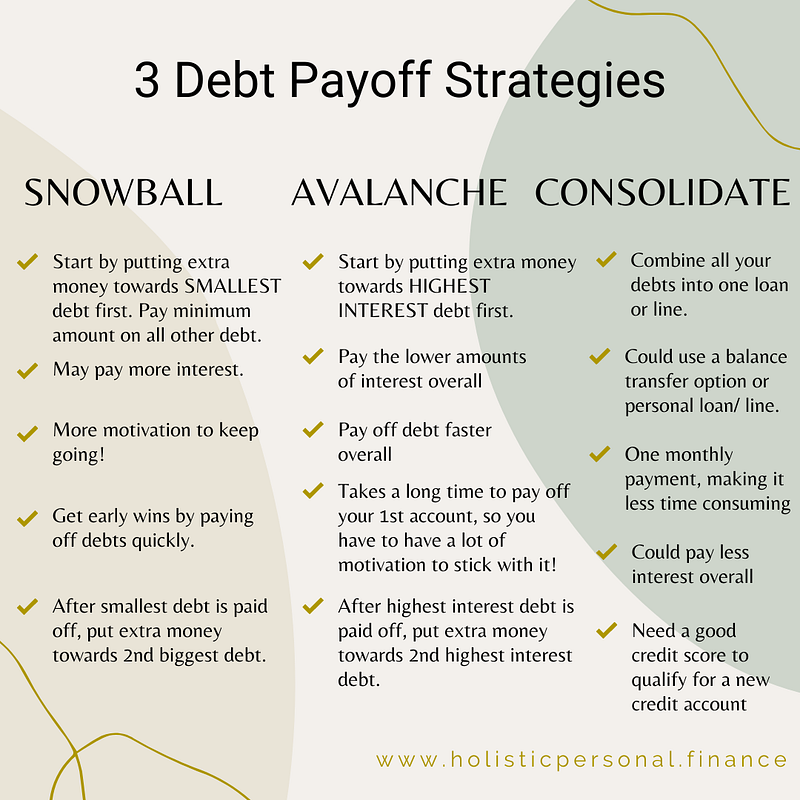5 Steps for a Post-Pandemic Credit Clean Up
Feb 15, 2021
The pandemic isn't over, but it is *hopefully* winding down. As we come out on the other side, you might find some new opportunities come your way. I'm guessing, if you've found your way to this blog, you want to take advantage of those opportunities and make some money moves! How do you make money moves? Leverage. The art and science of leverage is utilizing someone else’s money to invest in something that will gain appreciation or income.
What’s the #1 thing you need for leverage? A beautiful looking credit report! In my opinion, it’s one of the most undervalued parts of your financial profile.
What are the benefits of having a good (740+) credit score?
- Get lower interest rates on all your mortgage, auto loans, auto leases and other lending products. The difference between a 699 and a 740 can be over $35,000 on the life of a $300,000 mortgage.
- Scoring the best apartment, because landlords can looks at your credit.
- Landing a new job, because employers can look at your credit.
- Better credit card options! Higher limits, better rewards, more cash back.
- Save money on all your essentials from your cell phone to your utilities.

The credit score recipe:
- 35% Payment History: On time, 30, 60, & 90 days late payments reported. Information can stick on your report for 5-7 years.
- 30% Credit Utilization/ Outstanding Debt/ Debt Ratio
- 15% Credit History Length
- 10% New Credit Inquiries
- 10% Mix of Credit Types
A note for anyone looking to repair credit. Take a look at that 15% time factor. Since time is an uncontrollable factor, the best thing you can do is to take action with your credit as soon as possible. Then, put on your patience hat because it might be months before you see those 3 little numbers increase. Let’s address the other things you can control.
Where do you find your credit report?
Although there are a million advertisements telling you they can provide you your credit report, in reality- there is only one trusted site.
Access your credit at www.annualcreditreport.com
Pull up each credit report (Experian, Transunion, Equifax) separately and SAVE or print if possible.
Do the following with each report separately. Remember, these are each their own entity, so they do not share information. For example, changes or claims you make in Experian do not automatically spill over into Transunion and Equifax.
5 Steps to clean-up your credit report
1. Review name & contact information and make changes as necessary.
Take a look at each report and review the name, address, and contact information for each report. You should be able update these directly on the credit report.
2. File a claim for any mistakes listed.
Go through each account line by line. Look for mistakes in on-time payments and outstanding balances on both open and closed accounts. Use the electronic option first and wait at least 30 days then look for an update.
3. Contact companies to settle any outstanding balances.
Resolving or settling an Account is when you call the company or collection agency to try to negotiate your balance to a lower amount if you agree to pay off the entire (lower) balance OR agree to a payment plan. Go through all the accounts and make a list. Here are some settling tips:
- Keep a calm, even tone & be sweet. Remember the bees & honey rule!
- Have your credit reports in front of you.
- Set aside 1 hour per phone call.
- Don’t be afraid to start with a low-ball offer, what do you have to lose!
- Remind them that you just want this settled, your ready to pay, & see if there is Covid or any other types of relief that you might qualify for.
- Don’t be afraid to talk to a manager or two before you accept the final options.

4. Take a look at your credit utilization.
Calculate your ‘average debt ratio’ for all your revolving lines. So add up all of your balances and divide it by all of your limits. If it’s over 30%, you’ll want to first:
Make or review your monthly spending to stop the money leak and live within your means. Need to get clear on your finances? Try using the same workbook I've been using for years to help me pay off debt and increase my net worth by over $100k. You can download here!
Create a debt paydown plan and stick to it. There are a few major debt paydown strategies that you can utilize. You can find a great workbook for whatever strategy you use at vertex42.com. Take a look below and decide which might be best for you.

5. Follow these rules moving forward
- Pay all accounts on time!
- Don’t close any credit accounts unless it’s costing you money to keep it open.
- Don’t open any new lines of credit unless it’s for a consolidation or a large purchase like a mortgage. When rate shopping, try to limit hard credit inquiries.
- It’s great if you can have a mix of credit, but NEVER open a new account just to ‘get a better credit mix.’ It’s just unnecessary.
Now, that your report is cleaned up — go forth and take advantage of money making and saving activities!


